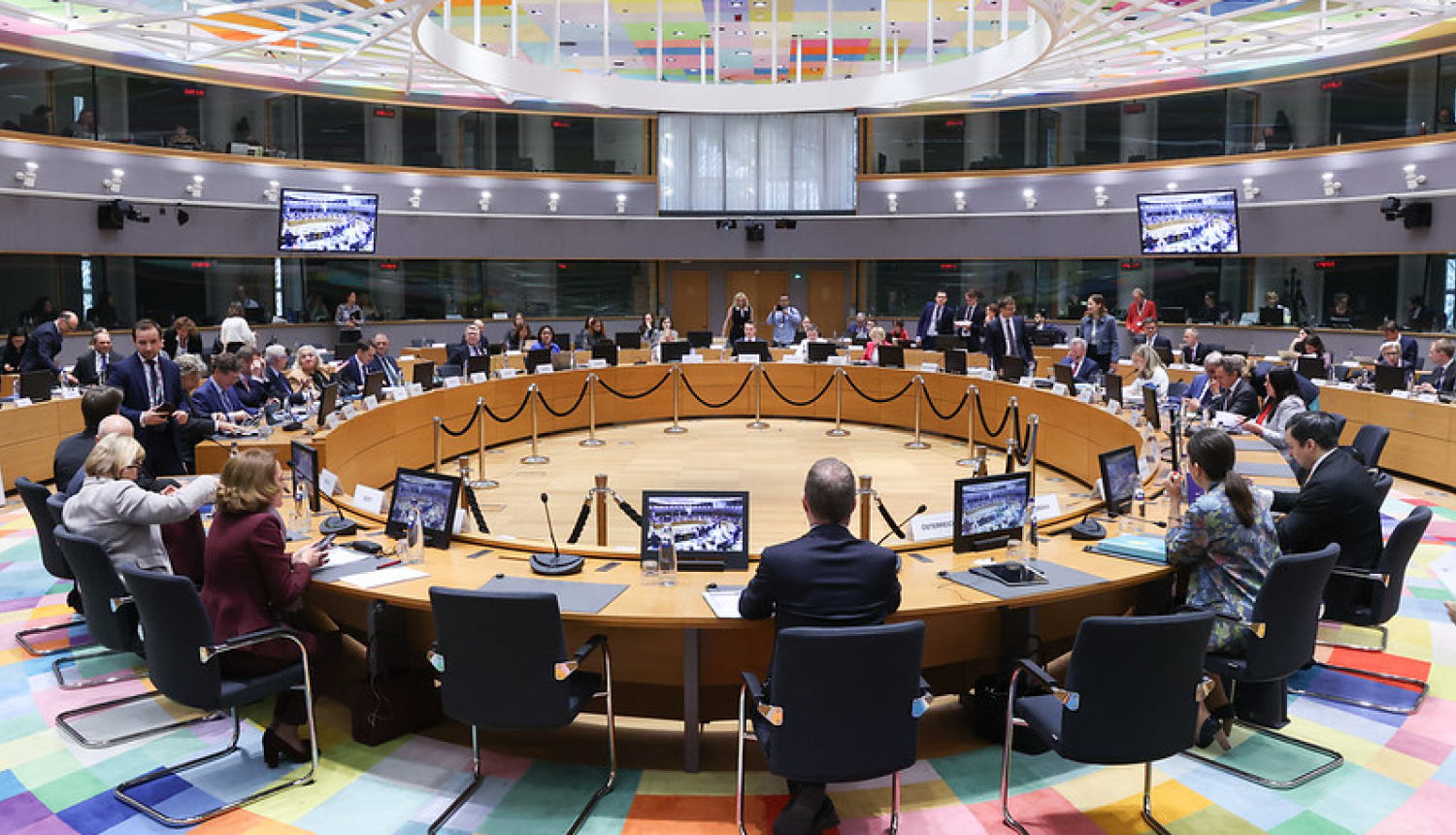On 27 May 2025, in Brussels, Belgium, the Parliamentary Secretary of the Ministry of Foreign Affairs, Artjoms Uršuļskis, participated in the meeting of the General Affairs Council of the European Union, which also held preparations for the European Council meeting of 26-27 June.
The main focus of the discussion was on Ukraine, as well as security and defence. The Parliamentary Secretary underlined: “Resolute action is needed to support Ukraine in every possible way – increasing military support for Ukraine, continuing sanctions pressure on Russia, advancing the process of Ukraine’s accession to the EU.” The Parliamentary Secretary also expressed strong support for the initiative launched of the EU High Representative for Foreign Affairs and Security Policy, Kaja Kallas, in March on increasing military assistance to Ukraine. The Parliamentary Secretary emphasised the need to unlock the financing of the European Peace Facility for Ukraine.
“A rapid development of a technological and industrial base for Europe’s defence is essential to strengthen European defence capabilities and preparedness. Funding is primarily needed for defence industry, research and infrastructure, including military mobility and strengthening the EU’s eastern border. The EU and NATO Member States must work towards increasing their defence spending. Latvia aims for reaching 5% of GDP as early as next year,” Artjoms Uršuļskis noted.
As a tangible contribution to EU security and defence, the General Affairs Council approved a new EU financial instrument, the Security Action for Europe (SAFE). It will provide a total of €150 billion in loans enabling Member States to purchase military equipment through common procurement.
In a discussion on strengthening the EU’s competitiveness, Artjoms Uršuļskis expressed support for work at EU level on simplifying the EU legal framework, which is essential for reducing the administrative burden on small and medium-sized enterprises in the Union. The European Commission has set the goal of streamlining rules and reducing administrative burden by 25% for businesses in general and by 35% for SMEs in particular.
The General Affairs Council also held a discussion on EU democratic resilience. The Parliamentary Secretary pointed to a number of measures to take in this area: “Effective and coordinated action is needed against disinformation, foreign manipulation and election interference. There is also an urgent need to address the rising risks posed by the use of AI as an instrument by hostile foreign players. Effective implementation of the EU Digital Services Act by online platforms must be ensured, respecting standards of accountability for and transparency of both illegal content and disinformation. It is also essential to promote the participation and role of civil society in democratic resilience processes.”
The Parliamentary Secretary thanked the Polish Presidency for its leadership in drawing up conclusions on EU democratic resilience as an input to the upcoming European Commission Communication on the European Democracy Shield and the formulation of concrete policies.
As part of the annual rule of law dialogue, ministers held an exchange of views on the rule of law situation in four member States – Slovakia, Finland, Sweden and Belgium. From Latvia’s standpoint, the sharing of best practices through dialogue is a useful approach to strengthening the rule of law in the EU.
In the sidelines of the General Affairs Council, Austria, Belgium, Cyprus, Czechia, Denmark, Estonia, Finland, France, Germany, Greece, Ireland, Latvia, Lithuania, Luxembourg, Malta, the Netherlands, Portugal, Slovenia, Spain, and Sweden signed a declaration in relation to recent legislative and constitutional amendments adopted by the Hungarian Parliament infringing on the fundamental rights of LGBTIQ+ persons.
The General Affairs Council deals with matters affecting more than one EU policy, such as negotiations on EU enlargement, preparations for meetings of the European Council, the EU’s long-term budget, as well as the rule of law, institutional and administrative matters.




